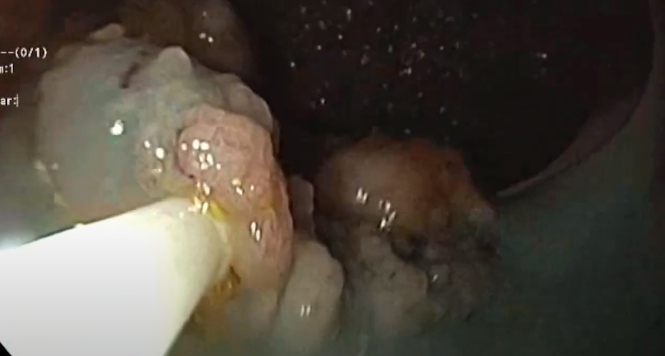Male Gender and Hot Avulsion Are Associated With Recurrence After Colorectal Endoscopic Mucosal Resection
Douglas K. Rex, MD, MASGE, reviewing Li S, et al. Endosc Int Open 2022 Nov 22.
Endoscopic mucosal resection (EMR) is the cornerstone of the treatment of large (≥20 mm) nonpedunculated colorectal lesions. This study from a Canadian expert center examined risk factors for recurrence over a 2-year interval ending in March 2019.
Among 265 patients, 14% had undergone a prior attempt at resection. The overall recurrence rate at first follow-up was 14.7%. This recurrence rate was despite use of snare tip soft coagulation (STSC) thermal treatment of the margin in 94% of patients. Adjunctive techniques to complete resection were used in 31% of patients, including hot avulsion in 95% of cases and cold avulsion in only 5%.
In a multivariable analysis, recurrence was not associated with age, lesion size or location, prior resection attempt, intraprocedural bleeding, or high-grade dysplasia (all of these have been associated with recurrence in one or more prior studies). Recurrence was associated with male gender (odds ratio [OR], 3.31) and use of hot avulsion (OR, 2.87).

COMMENTCollectively, the literature on risk factors for recurrence after colorectal EMR has inconsistent results. EMR remains the procedure of choice for most large nonpedunculated lesions proximal to the rectum, including those with one or more prior attempts at resection, as was demonstrated again in this study. Thus, if community endoscopists fail to fully resect large benign lesions, they should refer patients to expert endoscopists after the first failed attempt, and not refer for surgical resection. Margin treatment with STSC is well established, despite the suboptimal result in this study.
This study is not an argument against avulsion since prior studies have established that avulsion is a more effective concept than ablation of residual polyp that resists snaring. However, patients in whom avulsion is not required, as well as patients with lesions <30 mm size range and, perhaps, serrated lesions, may be candidates for first follow-up at one year rather than 6 months. The association between recurrence and male gender has been inconsistent in prior studies and remains unexplained.
Note to readers: At the time we reviewed this paper, its publisher noted that it was not in final form and that subsequent changes might be made.
CITATION(S)
Li S, Mosko J, May G, et al. Need for adjunctive removal techniques for endoscopic mucosal resection of large non-pedunculated colonic polyps is predictive of recurrence. Endosc Int Open 2022 Nov 22. (Epub ahead of print) (https://www.doi.org/10.1055/a-1984-6753)


